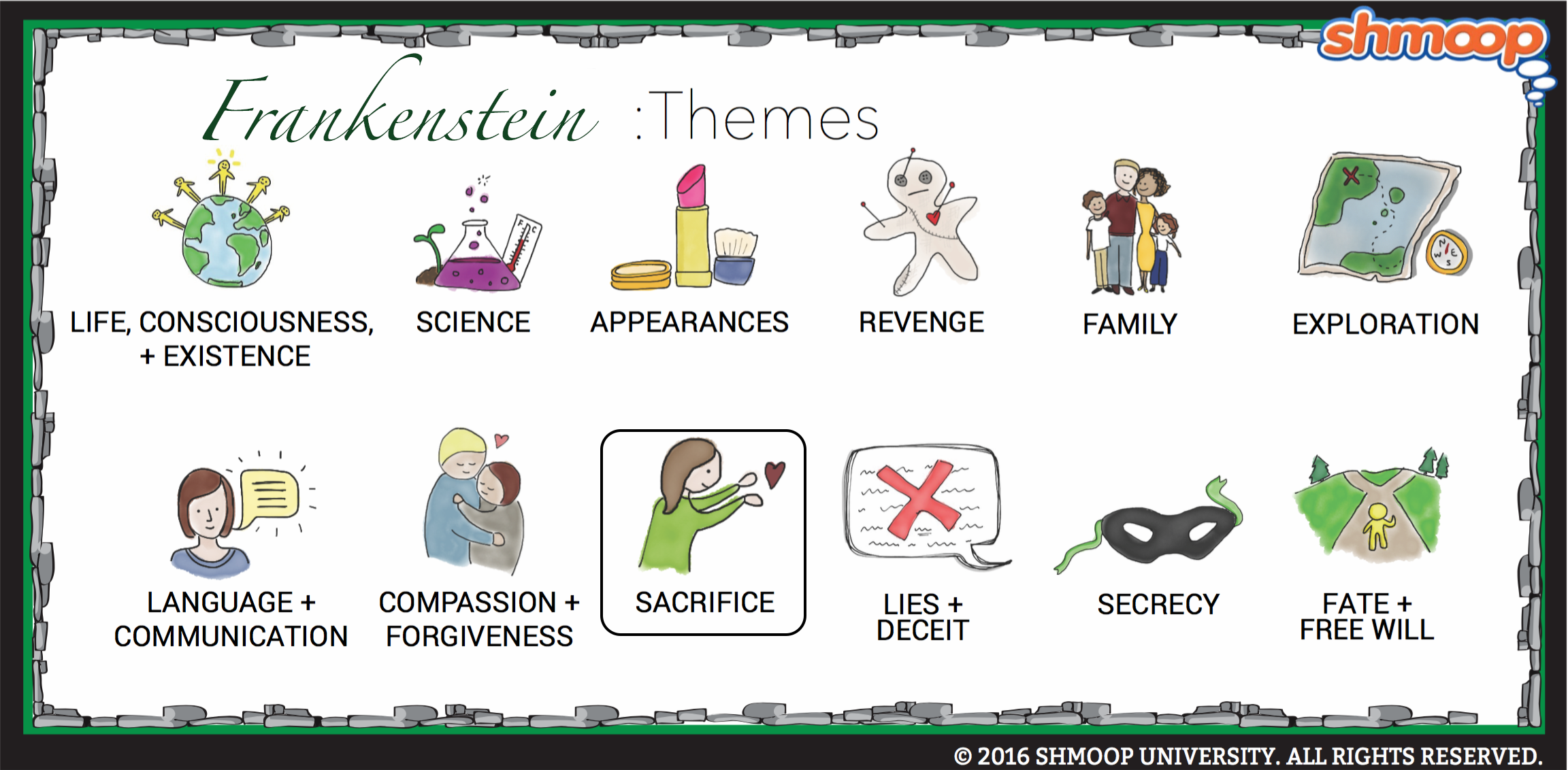 (Click the themes infographic to download.)
(Click the themes infographic to download.)
You know who sacrifices himself to save humanity? Jesus. And, if you were an ancient Greek or Roman, Prometheus. Does that make Victor a god-like figure? Or does he just want to think of himself as a god-like hero? After all, Victor's self-sacrifice also includes the sacrifice of those he loves, so—work with us here—it seems more an act of inhumane, self-absorbed injustice than like love for humanity. In Frankenstein, Victor decides to be a hero in his own mind rather than preserving the lives of those he loves. Thanks, but we can do without that kind of sacrifice.
Questions About Sacrifice
- Is Victor sacrificing himself or his family when he chooses to destroy the monster? Does he realize that he's going to be sacrificing his family along with himself?
- When Victor destroys the monster's mate instead of finishing it, is he truly enacting a self-sacrifice, or is he using self-sacrifice as an excuse to exact revenge on the monster for killing William and making Victor feel so guilty?
- Is Victor a Christ figure? Is he a Prometheus figure? (Check out "What's Up With the Title?" for thoughts on that.) What are the differences between a Christ figure and a Prometheus figure?
Chew on This
Victor wants to destroy the monster more out of a desire for revenge than any noble ideas about self-sacrifice.
Frankenstein criticizes the very idea of self-sacrifice as individualistic and selfish.